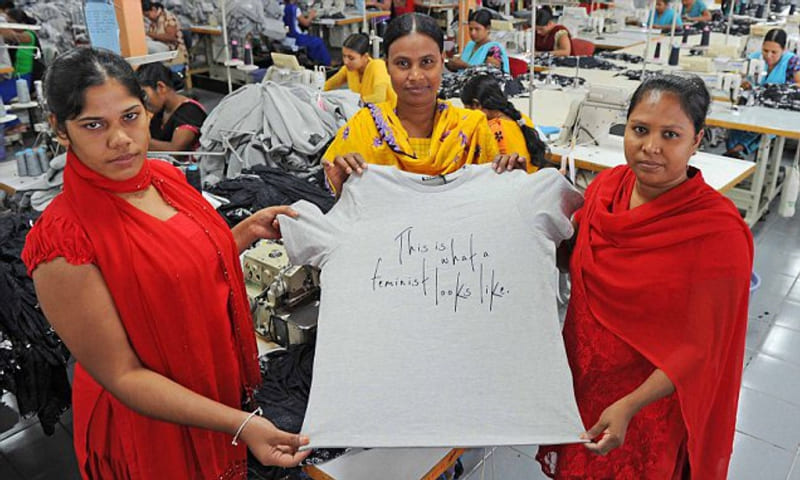The Controversy Erupts
When walking through a busy shopping district in Toronto, it’s not uncommon to see the latest fashion trends on display. However, every once in a while, something goes astray. Last week, a clothing store in the heart of Toronto’s bustling shopping district made headlines. Why? They displayed a shirt with a design that many found deeply sexist. Here’s what went down.
Toronto, renowned for its multiculturalism and progressive views, was taken aback when locals discovered a shirt that many deemed regressive. Word spread like wildfire, with many taking to social media to voice their concerns, sparking a city-wide debate. How could such a controversial piece of clothing find its way onto the shelves in one of Canada’s most progressive cities?
How Did This Happen?
It’s hard to fathom how such an oversight could occur. Some argue it’s a case of blind ignorance, while others believe there might have been a more malicious intent at play. Regardless, the incident serves as a reminder that even in the most forward-thinking cities, such missteps can and do happen.
- Supply Chain IssuesOften, international brands source their merchandise from various global suppliers. It’s not uncommon for designs to get lost in translation or for cultural nuances to be missed. Could this have been a case of an uninformed decision made halfway across the world, without understanding its implications in the Canadian market?
- Intentional ControversySome suggest the store might have displayed the shirt intentionally, banking on the adage “any publicity is good publicity.” However, in today’s world of cancel culture and social responsibility, this seems like a risky game to play.
Public Reaction and Social Media Storm
You’d think in this day and age, brands would be more careful, right? Well, it’s complicated. The immediate public outcry was fierce, with many taking to Twitter, Instagram, and other platforms to express their shock and disappointment.
- Outraged Celebrities Weigh InProminent figures in the entertainment and fashion industry didn’t waste any time. Tweets flooded in, with influential personalities condemning the shirt and the store. Some called for boycotts, while others used the opportunity to raise awareness about broader issues of sexism in society.
- The Power of the PeopleCrowds gathered outside the store in protest, holding placards and demanding an apology. It’s heartening to see Torontonians rally together, demonstrating that the city won’t stand for any form of discrimination.
The Aftermath: Pulling the Shirt from the Shelves
Given the uproar, the store had no choice but to respond swiftly. Within 24 hours, the shirt was pulled from the shelves. In addition, a public apology was issued, acknowledging the oversight and promising to review internal processes to prevent such incidents in the future.
- Damage ControlThe store offered refunds to anyone who had purchased the shirt and also made a significant donation to a local women’s rights organization. While some appreciated the gesture, others felt it was too little, too late.
- The Bigger PictureThis incident serves as a stark reminder of the ongoing fight against sexism. It’s not just about a shirt – it’s about a mindset. And while Toronto may be a beacon of progressiveness, there’s still work to be done.
What Can We Learn from This?
Mistakes happen. However, in a world where information travels at the speed of light, it’s imperative for brands to be culturally aware and sensitive. This incident highlights the importance of being proactive rather than reactive.
- Cultural Sensitivity in BusinessCompanies, especially those operating in diverse markets like Toronto, must prioritize cultural awareness. This involves not just understanding different cultures but also being aware of the socio-political climate and public sentiment.
- The Power of AccountabilityThe swift action taken by the public demonstrates that consumers have more power than ever before. Brands must realize that they’re accountable for their actions and that any misstep can have significant repercussions.
In the grand scheme of things, it’s just a shirt. But it’s also a symbol – a symbol of the ongoing fight against discrimination, prejudice, and insensitivity. Toronto’s urban tale serves as a lesson for all of us: to be vigilant, to be aware, and most importantly, to stand up for what’s right.






